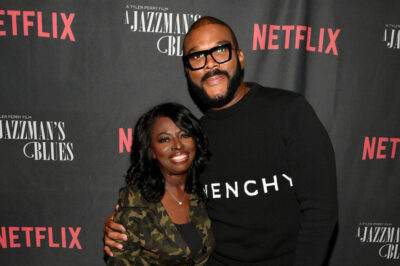In August 2022, South African rapper Big Zulu shook the local hip-hop scene with the release of his diss track, “150 Bars.” The track called out numerous artists, including K.O, AKA, Kwesta, Duncan, Stogie T, 25K, and others. While Big Zulu later claimed the song was meant as friendly competition, fans and industry insiders questioned his motives. Many wondered why certain rappers, such as A-Reece and his close friend Zakwe, were notably absent from the diss list.
As the dust settled, it became clear that Big Zulu’s selection of targets was intentional. The song ignited fierce responses, with some artists taking personal jabs at him, even bringing up allegations of abuse. Lines such as “this is karma for women that you abuse” pushed the conflict beyond music. What started as a lyrical battle quickly escalated into deeply personal disputes.
Fast forward two years to September 2024, and Big Zulu returned with an even more aggressive diss track, “200 Bars.” This sequel intensified the beef, further dividing the South African rap community. But where did these conflicts originate, and why did Big Zulu feel the need to stir the pot in the first place?

From Taxi Driver to Rap Icon
Before his rise in the music industry, Big Zulu worked as a taxi driver in South Africa’s highly competitive and often dangerous transportation sector. In 2008, he left his job to pursue a career in rap, spending several years as an independent artist before securing a record deal with Universal Music in 2015. His debut album, “Ushun Wenkabi,” dropped in July 2018 and marked the beginning of his mainstream success.
The following year, Big Zulu collaborated with Cassper Nyovest and Kwesta on his second studio album. The song “Ama Million” featuring Cassper Nyovest became a major hit, going platinum and peaking at number five on the iTunes chart. To capitalize on the track’s momentum, Big Zulu later released a remix featuring Kwesta.
His second album also included two tracks that foreshadowed his future rap feuds: “50 Bars” and “100 Bars.” On “50 Bars,” he casually mentioned Stogie T, Kwesta, and Cassper Nyovest, seemingly without provocation. However, the tone shifted on “100 Bars”, where he referenced the same rappers again, this time with a mix of admiration and critique.

The Fallout of 150 Bars
In September 2022, Big Zulu’s “150 Bars” dramatically altered the South African hip-hop landscape. Unlike his previous releases, this track took direct shots at prominent rappers, including:
- Stogie T (“You got a Mercedes tattooed on your neck, but your garage is empty”)
- Cassper Nyovest (“I turn the rap game into a taxi rank, I hire Cassper and Kwesta”)
- K.O (“When I look at you, you get a KO, KO”)
- 25K (“100K for my performance, don’t tell me about 25K”)
- AKA and K.O (“Last time y’all said you run Jo’burg, where are you running? Because we don’t see you”)
While some saw the track as an attempt to revive South African hip-hop, others believed it was a strategic move to generate controversy and attention. Interestingly, Kwesta was the only artist who knew about the diss track before its release. In an interview, he admitted that Big Zulu had informed him beforehand, though he had expected a more general commentary rather than direct name-drops.
Fear and Silence: Why Rappers Refused to Respond
One of the most intriguing aspects of Big Zulu’s diss track was the lack of immediate responses from his targets. While rap beefs typically lead to counter-disses, many rappers chose to remain silent.
A major factor? Big Zulu’s background in the taxi industry.
In South Africa, the taxi industry is known for its violence, including contract killings and gun-related crimes. Given Big Zulu’s past connections in this space, some artists feared that responding to him could escalate beyond rap. His reputation was further solidified by his open admission of carrying a firearm, as seen in an interview where he casually displayed a 9mm handgun.
In response to “150 Bars,” rapper MT refused to engage in a diss track, stating on an Instagram live session:
“What I love about diss tracks is that they expire in three days. I’m not wasting my time responding to that.”
Instead of taking the battle to the studio, MT and other rappers addressed the situation through interviews and social media, distancing themselves from any potential street-level repercussions.

Nota and Big Zulu’s Long-Standing Feud
One of the few public figures who directly challenged Big Zulu was Nota, a music executive and social commentator. Their rivalry had been brewing for a while, and “150 Bars” reignited their feud. In response to Big Zulu calling him “crazy” on the track, Nota fired back on The L-Tido Podcast:
“I dissed Big Zulu worse than anybody. Why is he so angry at me? I got under his skin without even releasing a song.”
Nota claimed that despite multiple rappers dissing Big Zulu, none provoked as strong of a reaction as he did.
The Controversial Ending of 150 Bars
Despite spending an entire track dissing fellow rappers, Big Zulu ended “150 Bars” on a surprising note—stating that he respected all the artists and intended to revive hip-hop. This contradiction did not sit well with many in the industry.
AKA publicly called out Big Zulu on Twitter:
“You can’t make a diss track and then praise everyone at the end. That’s not hip-hop.”
Big Zulu later responded via an Instagram live session, further fueling tensions.
200 Bars: The Beef Escalates
By September 2024, Big Zulu had doubled down on his controversial approach, releasing “200 Bars”—a sequel that took even harsher shots at his rivals. Unlike before, some rappers who initially ignored him began responding in interviews, social media posts, and even with diss tracks of their own.
As South African hip-hop fans eagerly follow this saga, the question remains: Is Big Zulu truly trying to revive the rap scene, or is he simply capitalizing on controversy for clout? Either way, his influence on the genre is undeniable, and the ongoing beef has reignited conversations about authenticity and competition in hip-hop.
News
Fox News’ Kat Timpf Outlines Next Steps Following Breast Cancer Diagnosis, Says ‘It’s Over’ Once She Recovers
The broadcaster shared her upcoming plans, which include “a double mastectomy” and “getting back in the gym” Kat Timpf. Photo: Omar Vega/Getty…
EXCLUSIVE: Today’s Sheinelle Jones to officially replace Hoda Kotb as Jenna Bush Hager’s co-host after she’s back from family leave
TODAY’s Sheinelle Jones is poised to officially replace Hoda Kotb as Jenna Bush Hager’s co-host after she returns from family…
Tyler Perry Pays Heartfelt Tribute To Angie Stone: ‘She Touched So Many Lives’
Tyler Perry Pays Heartfelt Tribute To Angie Stone: ‘She Touched So Many Lives’ As the entertainment world and music fans…
Witness Testifies Seeing Kelly Smith Dragging Joshlin into Shack Before Her Disappearance
Key Testimony Revealed in Western Cape High Court A crucial witness has testified in the Western Cape High Court regarding…
Joslin Smith Found After a Year-Long Search: A Nation Reacts to a Heartbreaking Case
In a major breakthrough, the South African Police Service (SAPS) confirmed the discovery of seven-year-old Joslin Smith, who had been…
The shocking story of the 8-year-old girl who survived the ZCC Moria bus accident that k!lled 45 people who were going to church. See here why she is the only one who survived & yet the other 45 people died.
8-Year-Old Girl Sole Survivor in Tragic Bus Crash That Kills 45 Easter Pilgrims in South Africa A Devastating Accident An…
End of content
No more pages to load












